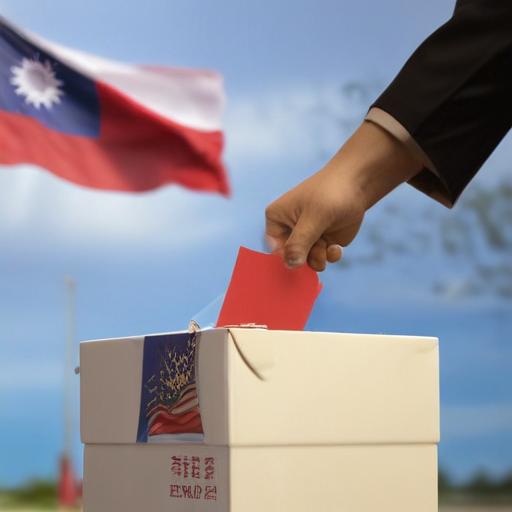Taiwan is nearing a significant political milestone with the unprecedented wave of “mass referendums” aimed at recalling members of the opposition party, specifically targeting Kuomintang (KMT) legislators whom many accuse of being pro-China. This movement is primarily fueled by a response to calls for “anti-communism and protecting Taiwan,” with critics asserting that it is a political maneuver by the Democratic Progressive Party (DPP) in retaliation for previous election losses.
On the night of July 5, hundreds gathered outside the Legislative Yuan, where support for the mass recall was palpable. Various groups from Taipei and New Taipei City organized activities to rally citizens, showcasing banners promoting independence and Taiwan’s distinct sovereignty. With slogans like “Recalling is a form of love,” volunteers emphasized that their motivations stem from love for Taiwan, rather than animosity towards specific legislators.
The movement has its roots in the broader “Bluebird Action” protests of 2024, rising from discontent over the opposition’s legislative push for controversial reforms. There has been increasing concern among citizens regarding the KMT’s alignment with China, particularly amid worries that proposed budget cuts, including to national defense, could undermine Taiwan’s ability to defend itself.
In a July 5 rally, speakers highlighted the urgency of opposing pro-China legislators, arguing that failing to do so could jeopardize Taiwan’s democratic freedoms. Political analysts indicate that the recall efforts, while motivated by anti-communist sentiment, reflect a growing desire for clearer national identity distinct from China.
As the recalls proceed, with 26 KMT legislators under the threat of removal and set for a vote on July 26, the implications for Taiwan’s political landscape could be substantial. A successful recall would not only shift the balance of power in the legislature but also signal public sentiment toward a firmer stance against perceived threats from China.
Critics of the recalls, particularly from the KMT, argue that the movement is a destructive political response that undermines democratic checks and balances, labeling it “malicious recall.” The KMT has attempted its own counter efforts at recalls against DPP members, though these initiatives have struggled to gain traction amidst allegations of fraudulent signatures.
The tension surrounding the mass recall initiative has drawn attention beyond Taiwan’s borders, with China expressing disapproval and framing the movement as a DPP orchestrated political manipulation, indicative of internal strife and “green terror.”
The situation remains delicately poised. As Taiwan grapples with its internal divisions, public response to these recall initiatives may shape its democratic fabric for years to come. Observers note that the initiative not only underscores a pivotal moment in Taiwan’s history but also embodies its citizens’ growing assertiveness in defining their future against external pressures.
In a hopeful perspective, this wave of political engagement highlights Taiwan’s vibrant democracy, where citizens actively participate in shaping their political landscape, reflecting a robust commitment to safeguarding their sovereignty and national identity amidst ongoing regional tensions.
